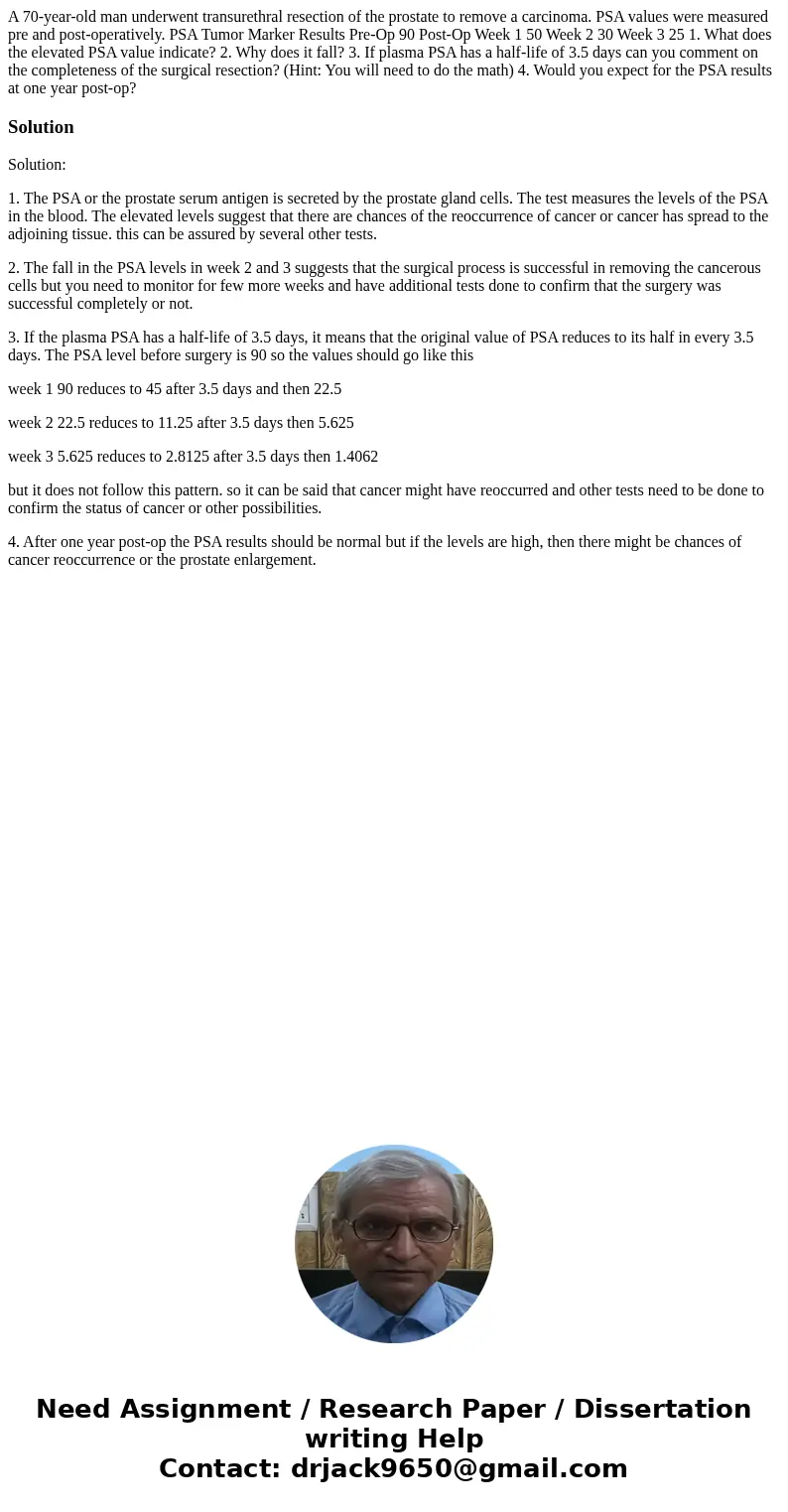A 70yearold man underwent transurethral resection of the pro
A 70-year-old man underwent transurethral resection of the prostate to remove a carcinoma. PSA values were measured pre and post-operatively. PSA Tumor Marker Results Pre-Op 90 Post-Op Week 1 50 Week 2 30 Week 3 25 1. What does the elevated PSA value indicate? 2. Why does it fall? 3. If plasma PSA has a half-life of 3.5 days can you comment on the completeness of the surgical resection? (Hint: You will need to do the math) 4. Would you expect for the PSA results at one year post-op?
Solution
Solution:
1. The PSA or the prostate serum antigen is secreted by the prostate gland cells. The test measures the levels of the PSA in the blood. The elevated levels suggest that there are chances of the reoccurrence of cancer or cancer has spread to the adjoining tissue. this can be assured by several other tests.
2. The fall in the PSA levels in week 2 and 3 suggests that the surgical process is successful in removing the cancerous cells but you need to monitor for few more weeks and have additional tests done to confirm that the surgery was successful completely or not.
3. If the plasma PSA has a half-life of 3.5 days, it means that the original value of PSA reduces to its half in every 3.5 days. The PSA level before surgery is 90 so the values should go like this
week 1 90 reduces to 45 after 3.5 days and then 22.5
week 2 22.5 reduces to 11.25 after 3.5 days then 5.625
week 3 5.625 reduces to 2.8125 after 3.5 days then 1.4062
but it does not follow this pattern. so it can be said that cancer might have reoccurred and other tests need to be done to confirm the status of cancer or other possibilities.
4. After one year post-op the PSA results should be normal but if the levels are high, then there might be chances of cancer reoccurrence or the prostate enlargement.

 Homework Sourse
Homework Sourse